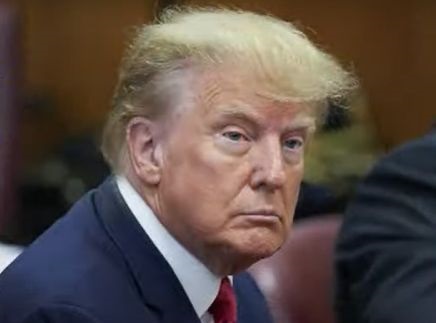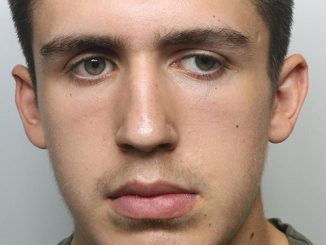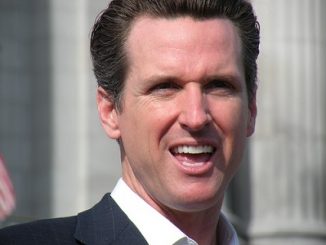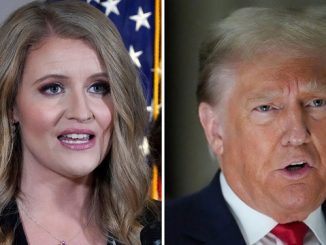
Last week, we learned Donald Trump had been charged with a crime. Now we know the former US president faces 34 counts of falsifying business records.
Although falsifying records are usually treated as lesser misdemeanours, Mr Trump is accused of committing felony offences. That denotes a more serious crime, which could include prison time if a maximum sentence is given.
“At its core, this case today is one with allegations like so many of our white-collar cases,” New York City District Attorney Alvin Bragg said of the charges his office has brought against the former president. “Allegations that someone lied, again and again, to protect their interests and evade the laws to which we are all held accountable.”
Mr Trump – who pleaded not guilty to all the charges – insisted after leaving the courthouse that there was no case to answer. “There was nothing done illegally!” he posted on his social media website.
That, however, will be for a jury to decide. In the meantime, here are the details of the historic first-ever criminal indictment of a former president.
All 34 charges relate to hush-money payment
Donald Trump faces 34 felony charges of falsifying business records in the first degree.
The charges all relate to a $130,000 hush-money payment by lawyer Michael Cohen to adult film star Stormy Daniels just before 2016 election in order to prevent her from talking about her allegations that she had an affair with Mr Trump in 2007.
In the court documents, Cohen is referred to as Lawyer A and Stormy Daniels as Woman 2.
The first line of the Statement of Facts, a document that accompanied the indictment, spells out the prosecution case: The defendant DONALD J. TRUMP repeatedly and fraudulently falsified New York business records to conceal criminal conduct that hid damaging information from the voting public during the 2016 presidential election.
Trump’s alleged cover-up happened when he was president
New York’s case against Mr Trump hinges on how Cohen was compensated for those hush-money payments.
In 2017, after becoming president, Mr Trump met with Cohen in the White House. Shortly thereafter – and over the course of 10 months – Mr Trump began sending cheques from a trust handling his assets, and later from his own bank account, to Cohen.
Those cheques were registered as “legal fees,” but Cohen says they were, in fact, reimbursements for the hush-money payment.
The prosecution case states: The payment records, kept and maintained by the Trump Organization, were false New York business records. In truth, there was no retainer agreement, and Lawyer A was not being paid for legal services rendered in 2017. The Defendant caused his entities’ business records to be falsified to disguise his and others’ criminal conduct.
From a misdemeanour to a felony
Mr Bragg alleges that Mr Trump falsified the true nature of the payments because those payments were made in support of a crime. While hush-money payments are not by themselves illegal, spending money to help a presidential campaign but not disclosing it violates federal campaign finance law.
Cohen was convicted of just such a violation for not disclosing his payment to Ms Daniels. By reimbursing Cohen for that payment, Mr Bragg asserts, Mr Trump is tied to that criminal act – and it makes his falsification of business record a more serious offence.
Mr Trump’s defenders argue that is a legal stretch, and that this is a politically-motivated prosecution.
‘A pattern of criminal behaviour’
Mr Bragg cites two other examples of hush-money payments by Mr Trump’s campaign. These payments, he says, support the prosecution case that Mr Trump knew his payments to Cohen were part of an illegal attempt to influence the 2016 presidential election.
“The defendant orchestrated a scheme with others to influence the 2016 presidential election by identifying and purchasing negative information about him to suppress its publication and benefit the defendant’s electoral prospects,” the indictment’s Statement of Facts asserts. “In order to execute the unlawful scheme, the participants violated election laws and made and caused false entries in the business records of various entities in New York.”
In one case, a doorman who said he knew Mr Trump had a child out of wedlock received $30,000. In another, a second woman who claimed she had an an affair with Mr Trump received $150,000. Mr Trump has denied the affair.
These payments came from the tabloid National Enquirer magazine and its then-publisher, David Pecker, who Mr Bragg says co-ordinated with Mr Trump to suppress potentially damaging information from seeing the light of day. As a reward, the indictment notes, Mr Pecker received an invitation to Mr Trump’s inauguration.
Defiant Trump public address from Mar-a-Lago home in Florida
Donald Trump has said in a defiant address after pleading not guilty to falsifying business records to hide damaging information ahead of the 2016 election “The US is “going to hell”.
“The only crime that I have committed is to fearlessly defend our nation from those who seek to destroy it,” the 76-year-old told supporters gathered at his Mar-a-Lago home in Florida.
He said that the “fake case” was simply part of a Democratic conspiracy to interfere with next year’s presidential election, in which he is running.
Source: bbc.co.uk






Be the first to comment